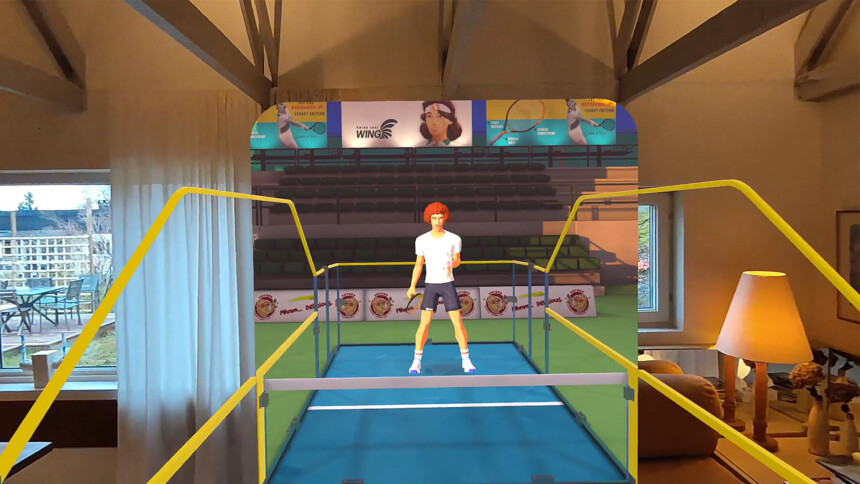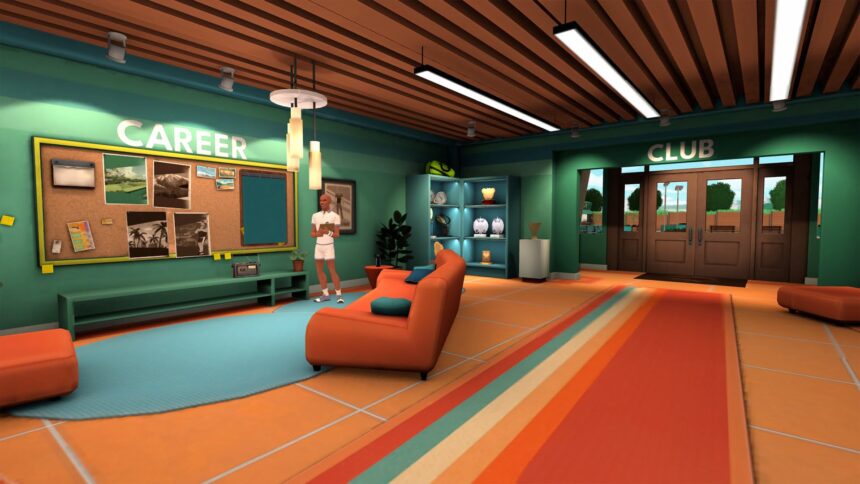
It is designed for challenging multiplayer matches (1v1 and 2v2) and, like Demeo and Blaston, has a strong social component: Off the pitch, players can roam, meet and get to know each other in a detailed sports club environment.
Currently, the studio is unveiling the single-player modes of the game.
- Players can engage in practice sessions that immediately initiate a match against an AI opponent, replicating the experience of playing singles multiplayer. This allows players ample space to enhance their skills and boost their self-assurance.
- Drills present a series of objectives that will teach players basic and advanced techniques to help improve their game. Drills focus on helping players understand the rules, as well as mastering different shots and reactions.
- Career mode allows players to compete in individual bracket championships against AI opponents from various locations worldwide, providing them with an opportunity to explore different environments beyond their familiar home court.

Cozy lounge in the club environment of Racket Club. | Image: Resolution Games
Machine learning enables lifelike AI rivals
Resolution Games uses machine learning to create the bots. Using anonymized data from real players and deep reinforcement learning and deep imitation learning, the studio trained the AI rivals to react physically and behaviorally like real players.
Mikhail Jacob, the lead machine learning engineer at Resolution Games, explains that by using data from matches played by humans instead of pre-programmed patterns, we can create bots in Racket Club that play just like real-life opponents.
“This allows for challenges that are authentic yet unpredictable, helping to keep players on their toes and ready to discover new strategies. It also means that our bots aren’t limited in their options by a range of pre-canned animations. Our AI rivals have learned about movement from the physicality of real human players, allowing for a full range of actions and reactions on the court.”
Pico 4 also supports mixed reality mode.
Resolution Games unveiled a fresh trailer, showcasing the introduction of mixed reality mode. This innovative feature seamlessly merges the virtual court with the player’s physical surroundings. By setting up transparent court walls in their real-world environment, players can conveniently observe their space, allowing for powerful swings and intense point rallies. Meanwhile, the opposing player’s side of the court is entirely virtual, visible solely through a portal wall.
Lastly, the studio has unveiled the advancement system: Each match you participate in will grant you experience points that can be utilized to unlock aesthetic items (such as sweatbands, sneakers, etc.) and new rackets. However, it’s worth noting that only the latter will actually affect the gameplay. Initially, there will be a total of 20 distinct rackets available, each with their own unique focuses on spin, speed, and mass.
The game Racket Club will be purchasable on December 14th for $24.99 at the Meta Quest Store, Pico Store, and Steam. Pre-ordering on Meta Quest will grant a 12 percent discount.







